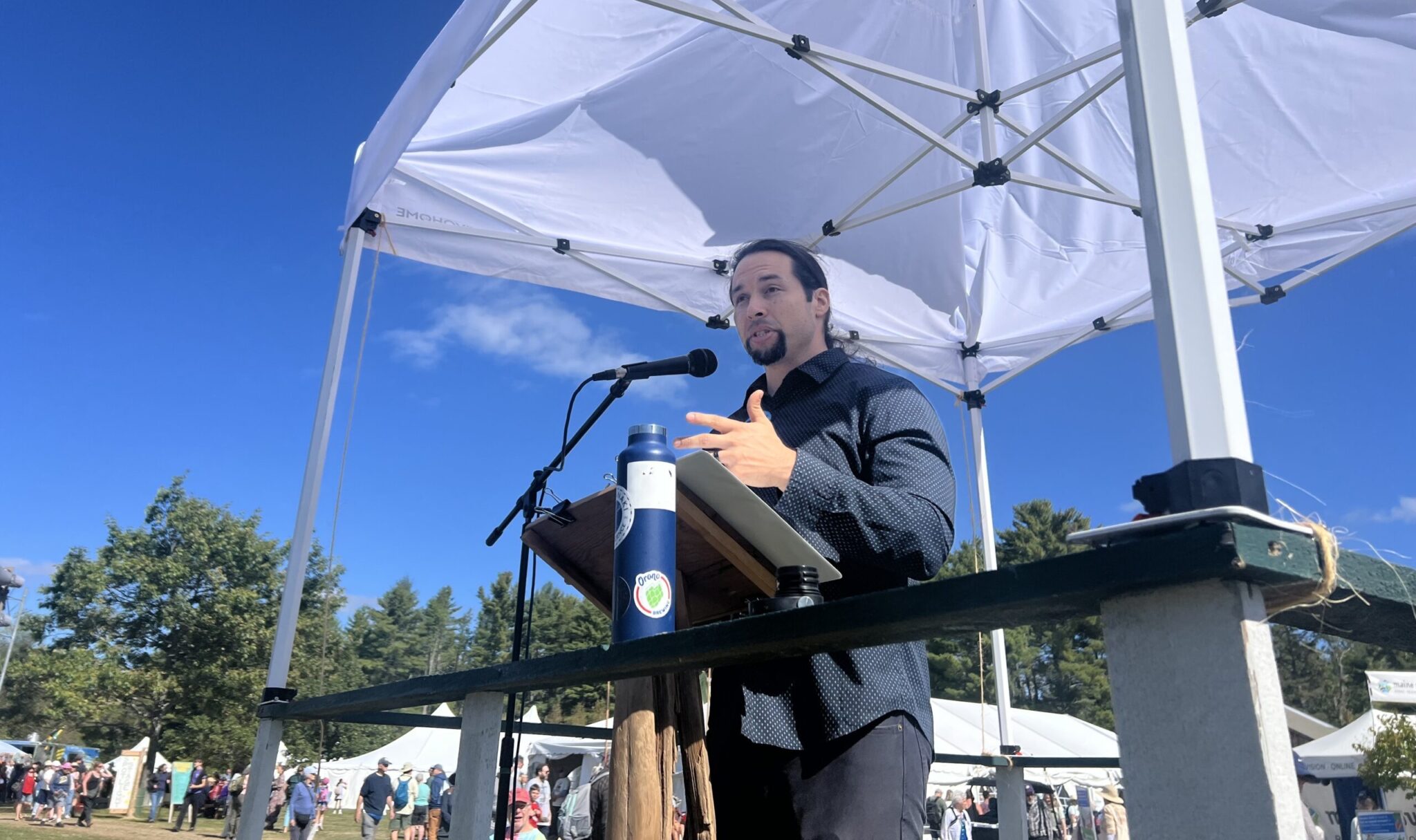
Maine led the country in enshrining the “right to food” in its state constitution. But the subjugation of the Wabanaki Nations has complicated that right for the original inhabitants of the land.
Anthony Sutton, assistant professor of Native American Programs and Cooperative Extension at the University of Maine, highlighted the differences between the traditional ways Indigenous communities use natural resources for food and cultural practices and the state’s current food sovereignty laws during his keynote speech at the Common Ground Fair in Unity on Friday.
Stay current on Tribal-State relations, legal developments, resources, and stories from our communities.

We respect your privacy and do not share your information with anyone.
The Maine Indian Tribal-State Commission (MITSC) is an inter-governmental entity created by the Maine Implementing Act of 1980. Six members are appointed by the State, two by the Houlton Band of Maliseet Indians, two by the Passamaquoddy Tribe, and two by the Penobscot Indian Nation. The thirteenth, who is the chairperson, is selected by the other twelve.
Read More about MITSC Here